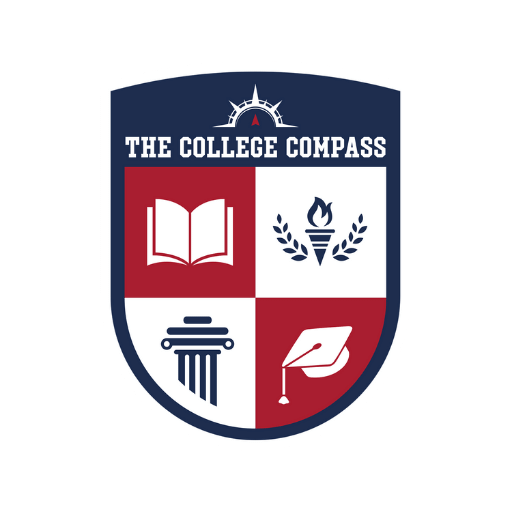College Recommendation Letter - What is it and How to Secure One?
Learn to navigate the tricky process of requesting standout recommendation letters. Plus, discover strategies for choosing the best recommenders to boost your college applications.
- By: The College Compass Team

When it comes to college admissions, letters of recommendation are highly regarded. They offer a unique perspective, complementing your grades and SAT or ACT scores with a narrative of who you are beyond your academic prowess.
From understanding who to ask to decoding how to ask, we’ll leave no stone unturned, preparing you for this pivotal moment in your academic journey.
Consider this your map to conquering the daunting task of securing a persuasive, influential recommendation letter, a task that could significantly shape your college destiny.
Understanding Recommendation Letters
Unlike your GPA or test scores that may seem predictable and follow a set course, letters of recommendation sparkle with your unique personal qualities. They can illuminate your journey and truly capture the attention of admissions officers.
So, what exactly are these recommendation letters?
These letters testify to your personal qualities, dedication, and potential, giving admissions officers a glimpse into your character. They share stories and insights that can’t be encapsulated in a grade or score, providing a holistic view of you as a student and a person.
Despite their subjective nature, recommendation letters hold considerable weight in your college application.
Imagine your application as a puzzle; while grades and test scores form the edges, recommendation letters fill the middle, completing the picture.
Who to Ask for a Recommendation Letter?
Now that we know the ‘why,’ let’s delve into the ‘who.’ Who should you ask for a recommendation letter?
Picture a story being narrated. Who would you want as your narrator? Someone who knows you well and has observed you in a setting where you’ve shown determination, ingenuity, or any other attribute that reflects your potential.
Typically, recommenders fall into categories such as teachers, counselors, employers, or coaches.
But it’s not just about the title. It’s about who can best articulate your abilities and potential. A math teacher who has observed your tenacity, a coach who has witnessed your leadership, or a boss who can vouch for your responsibility, are all excellent choices.
While choosing your recommenders, consider the relationship you have with them, your academic performance in their class, and their writing skills. It’s equally essential that your recommender can write a compelling, articulate letter.
And what if you’re applying for a specific field of study? In such cases, getting a recommendation from a relevant person could work wonders. For instance, an art teacher could speak volumes about your creativity and passion if you’re applying for an art major.
How to Ask for a Recommendation Letter
Identifying the right person to request a recommendation letter from is just the first step. The next crucial step is to determine the most effective way to approach them and ask.
So, how can you confidently and assertively ask someone to write a recommendation letter for you?
It can be an awkward and intimidating process, but with a few tips and tricks, you can navigate it with confidence.
Plan Ahead
Time is of the essence when requesting a recommendation letter. Give your recommenders ample time, ideally a month or two before the due date. This courtesy gives them sufficient time to craft a thoughtful, detailed letter.
Make the Request Personally
If possible, ask for the letter in person. It’s not only respectful but also allows for an open, detailed discussion. However, due to circumstances like the COVID-19 pandemic, you might have to resort to digital communication. In this case, opt for a formal, well-written email.
The Art of the Email
Start by greeting them warmly, remind them who you are and how they know you, then move to the purpose of your email. Be concise and clear about what you are requesting and why you believe they would be an excellent source for a recommendation.
Follow Up
After making the initial request, maintain open lines of communication. Send a gentle reminder as the deadline approaches and thank them for their time and effort once the letter is sent.
If you’re a professor or tutor who’s been asked to write a recommendation letter and you’re not sure how to go about it, our guide on How to Write a Letter of Recommendation with Examples can be a valuable resource.
Providing Information to Your Recommender
Providing relevant information to your recommender is like handing them the paint for your portrait.
- The Brag Sheet: Think of this as your fact sheet or a guide for your recommender. It should include academic achievements, extracurricular activities, specific projects, and personal qualities that you’d like highlighted.
- Selecting Information: Choose achievements that align with the college’s values or the course you’re applying to. If you excelled in a particular project or showcased leadership in an activity, include it.
- The Outcome: By providing these key details, your recommender can write a more effective letter, one that is tailored to accentuate your strengths and suitability for the college.
Remember, your recommenders are your advocates in the admissions process. Providing them with comprehensive, relevant information empowers them to craft a persuasive and compelling recommendation letter.
Handling FERPA Rights
The Family Educational Rights and Privacy Act (FERPA) protects your educational records, including recommendation letters. When you apply, you’ll encounter the choice to waive your FERPA rights for each recommendation letter.
Why might you consider waiving these rights?
Indeed, during extensive research and exploration of online discussion platforms like Quora, it became apparent that students often wonder if they can preview and select their recommendation letters. The consensus among some experts, however, is a resounding ‘no.’
Why? Because it gives recommenders the freedom to express their thoughts openly, thereby enhancing the credibility of the letter in the eyes of the college admissions committee.
If you choose not to waive this right, it can potentially reduce the impact of the letters. Colleges might perceive these letters as less authentic and consequently assign them less importance. Thus, paradoxically, by preserving the right to see your recommendation letters, you might inadvertently diminish their value.
In essence, obtaining recommendation letters is designed to ensure an honest and unfiltered appraisal of your abilities and merits, thereby contributing to a fair and comprehensive evaluation of your college application.
Deadlines and Planning
Deadlines are critical in the college application process, and recommendation letters are no exception.
When to Ask
Ideally, start asking for recommendation letters at the beginning of your senior year. This gives your recommender ample time to compose a thoughtful letter.
Give Ample Time
Provide your recommenders with a deadline that’s at least a month before your application deadline. This ensures that your application process isn’t hindered, even if there are any delays.
Backup Plan
If a recommender doesn’t follow through, having a backup recommender can save the day. So, always have one or two additional people who could provide a letter if needed.
Remember, planning ahead, respecting deadlines, and having contingency plans are essential to ensuring a smooth process for acquiring your recommendation letters.
What Makes a Good Recommendation Letter
A good recommendation letter is more than just a positive endorsement; it’s a compelling narrative that adds depth to your application.
- Personal and Descriptive: Strong letters are personal, bringing your character to life through anecdotes and insights that illustrate your traits and achievements.
- Complementary to Your Application: They complement your application, filling in gaps or providing context to your achievements.
- Bias in Letters: It’s important to understand that letters may sometimes reflect the bias of the recommender. While most recommenders strive for objectivity, biases can creep in subtly. Being mindful of this when selecting your recommenders can help ensure that your letters provide a balanced view of your capabilities.
Submitting Recommendation Letters
Submitting your recommendation letters should ideally follow a smooth process:
- Submission Process: Most colleges use online platforms like the Common Application or Coalition Application, where recommenders can upload their letters directly. Some may require mailed letters, in which case, ensure you provide your recommenders with pre-addressed, stamped envelopes.
- Handle Delays: If the deadline is approaching and your letter hasn’t been submitted, don’t panic. Politely remind your recommender about the deadline. If there’s no response, reach out to your backup recommender, or contact the admissions office to discuss your situation.
Managing the submission process effectively can be the final, crucial step towards ensuring that your recommendation letters enhance your college application.
Expressing Gratitude
Expressing gratitude to your recommenders is not just courteous; it’s essential. They’ve dedicated their time and effort to help your college dream come closer to reality.
- Personal Thank You Note: A handwritten thank you note can convey your appreciation most authentically. In the note, express how much you value their support and how it’s helped you in your college journey.
- Digital Appreciation: If a handwritten note isn’t feasible, a thoughtful email works just as well. Be specific in your thanks, mentioning their role in your college application process.
- Stay in Touch: Keep your recommenders updated on your college admissions progress. This continuation of the relationship shows your ongoing appreciation and respect.
Wrap Up
Recommendation letters illuminate your personal and academic journey, providing colleges with insights beyond what grades and scores can reveal. However, securing these precious letters isn’t just about asking; it involves building relationships, choosing the right recommenders, providing them with the necessary information, and navigating FERPA rights and submission deadlines.
So, as you embark on this quest for the perfect recommendation letter, approach it thoughtfully and respectfully.
Remember to be patient and appreciative of your recommenders.
After all, these letters can turn the tide in your favor, casting a warm, inviting light on your path to college.
I Got My Letters of Recommendation; Now What?
Congratulations! You’ve successfully navigated one of the more challenging aspects of your college application process. So, you might be wondering, “I got my letters of recommendation; now what?” Let’s navigate the next steps together.
- Submission Check: Begin by confirming your letters have reached their destination. Whether your recommenders uploaded them directly or sent them via a platform like Common App, ensure they’re safely in the hands of your desired colleges.
- The Power of Words: Next, it’s time to weave magic with your words in your personal statement or college essays. Remember, this is your chance to add color and personality to your application. Let colleges see who you are beyond the grades and scores.
- Putting the Pieces Together: Your application is like a jigsaw puzzle. It’s time to make sure all the pieces fit together. Check and double-check all sections of your application. Be it your extracurricular activities, leadership roles, or awards, make sure they’re all there, perfectly presented.
- Test Scores: If your colleges aren’t test-optional, ensure your SAT or ACT scores are submitted. These scores, in combination with your recommendation letters and other elements, provide a comprehensive view of your academic potential.
- The Waiting Game: Once your applications are complete and submitted, it’s time for the waiting game. Breathe! This can be a nerve-wracking period, but remember, you’ve done your best. Now, it’s over to the admissions officers.
Editorial Disclaimer
The College Compass is reader-supported and committed to maintaining complete editorial independence. All views expressed are solely ours and are not influenced by any external party. We may include affiliate links in the article, which helps us earn a small commission to support our work. We always have a link to the source for any data or information we include. Learn more about our editorial practices.
College Admissions Insights & Advice
